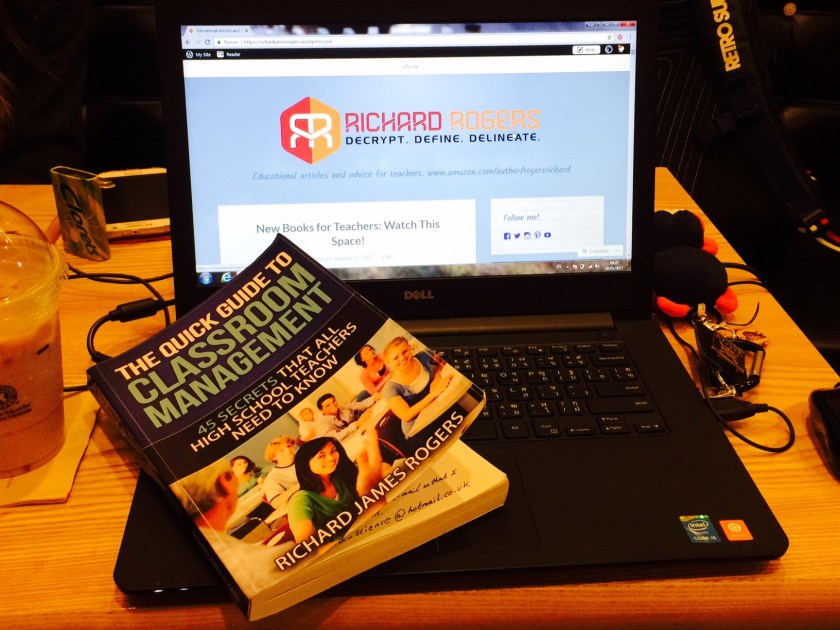An article by Richard James Rogers (Award-Winning Author of The Quick Guide to Classroom Management and The Power of Praise: Empowering Students Through Positive Feedback).
Illustrated by Pop Sutthiya Lertyongphati.
Hello, fellow speaker! Are you ready to conquer the stage and captivate your audience with your words? Public speaking can be a nerve-wracking experience, but fear not! In this blog post, we’ll explore some invaluable tips to help you become a confident and engaging ‘sage on a stage’. So, grab a cup of coffee, sit back, and let’s dive in!
#1: Know Your Audience
Understanding your audience is the first step towards delivering a memorable speech. Research their demographics, interests, and knowledge level to tailor your content accordingly. Speak their language, incorporate relatable anecdotes, and address their pain points. Remember, your ultimate goal is to connect with your audience on a personal level.
#2: Structure Your Speech
A well-structured speech can make all the difference in keeping your audience engaged. Begin with a compelling opening that grabs attention, followed by a clear introduction of your topic. Organize your main points logically, supporting them with relevant examples or stories. Finally, end with a strong conclusion that leaves a lasting impression.
#3: Practice, Practice, Practice
Rehearsing your speech is crucial. Familiarize yourself with the content and practice it aloud multiple times. Pay attention to your tone, pace, and body language. Consider recording yourself or rehearsing in front of a mirror to assess your delivery. The more you practice, the more confident and natural you’ll become on stage.

#4: Embrace Non-Verbal Communication
Effective communication extends beyond words. Pay attention to your body language, facial expressions, and gestures. Stand tall, maintain eye contact, and use appropriate hand movements to enhance your message. Be mindful of your posture and avoid fidgeting. Confident body language will help you establish a strong presence and connect with your audience.
#5: Utilize Visual Aids
Visual aids can reinforce your message and make it more memorable. Use slides, props, or multimedia presentations to complement your speech. However, be cautious not to overload your audience with too many visuals. Keep them simple, clear, and visually appealing, while serving as a visual support to your spoken words.
#6: Engage Your Audience
Interaction is key to keeping your audience engaged throughout your speech. Encourage participation by asking rhetorical questions, inviting volunteers, or using audience polls. Incorporate moments for small group discussions or brief activities to break the monotony. Consider using live quizzes that the audience can participate in using their devices (e.g. Kahoot!, Blooket and Quizlet Live). Remember, an engaged audience is more likely to retain your message. They’ll also be happier and will enjoy themselves during your presentation, and you’ll be more likely to get referrals afterwards.
#7: Connect Through Storytelling
Humans are wired for stories. Incorporate personal anecdotes, real-life examples, or relevant narratives to connect with your audience emotionally. Stories evoke emotions, enhance relatability, and help your audience connect the dots. Make your speech memorable by sharing stories that resonate with your audience.

#8: Be Authentic
Authenticity is the secret ingredient to captivating your audience. Embrace your unique voice, personality, and style. Avoid imitating others or trying to be someone you’re not. Embrace your imperfections and let your genuine passion for the topic shine through. Audiences appreciate speakers who are genuine and relatable.
#9: Handle Nervousness
Even the most seasoned speakers experience nervousness. Embrace it as a natural response and use it to your advantage. Channel that energy into enthusiasm and excitement. Practice deep breathing, visualization, or other relaxation techniques before stepping on stage. Remember, nervousness is a sign that you care, and your audience wants you to succeed.
#10: Seek Feedback and Learn
After each speaking engagement, seek feedback from trusted sources. Analyze what worked well and areas that need improvement. Join public speaking clubs or workshops to refine your skills further. Remember, mastery takes time, so be patient and committed to continuous growth. If you would like to earn a Certificate in Public Speaking, then check out my Powerful Public Speaker programme, which can be delivered online wherever you are in the world (or on-site, if you happen to live in Thailand).
Conclusion
Congratulations! Armed with these public speaking tips, you’re well on your way to becoming an exceptional speaker. Embrace the opportunity to share your ideas, inspire change, and leave a lasting impact on your audience. Remember, every great speaker started somewhere, so don’t let fear hold you back. Embrace the stage, believe in yourself, and let your voice be heard!
We welcome you to join the Richard James Rogers online community! Join us on Facebook and Twitter for regular updates, giveaways of Richard’s books, special offers, upcoming events and news.





